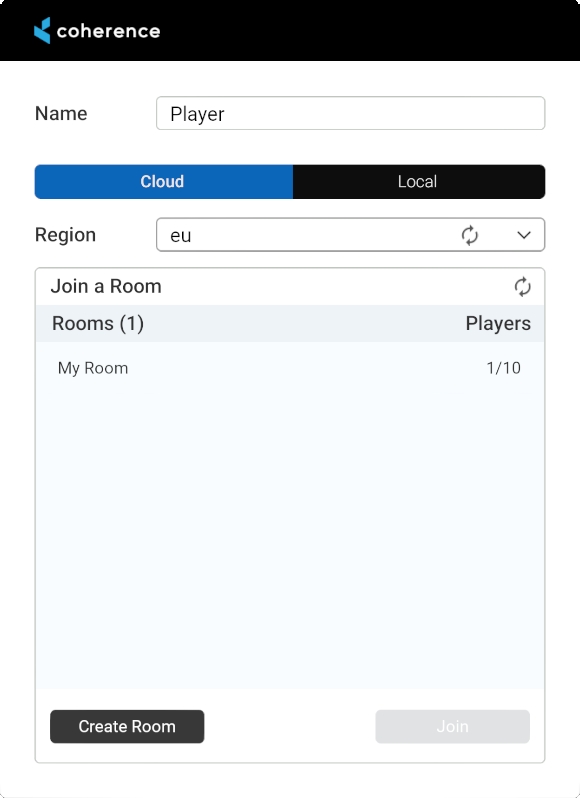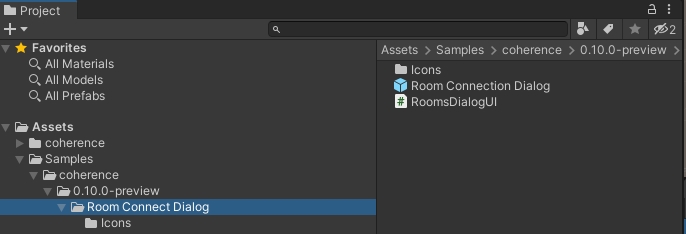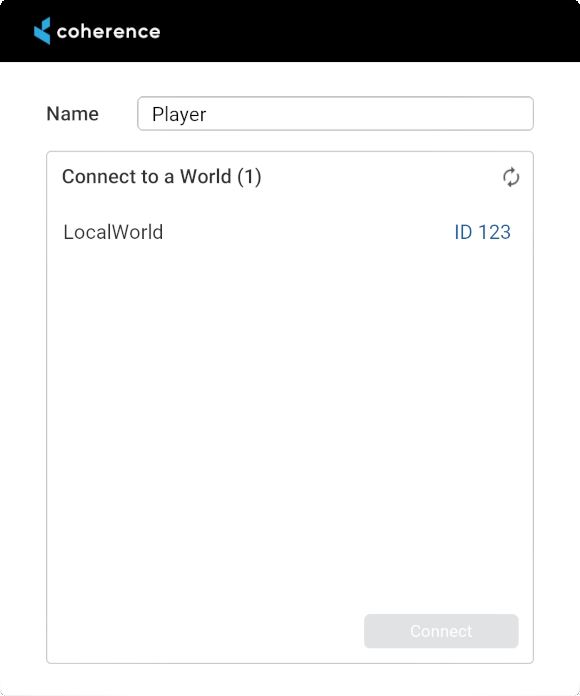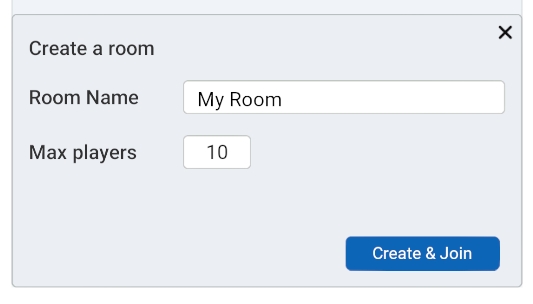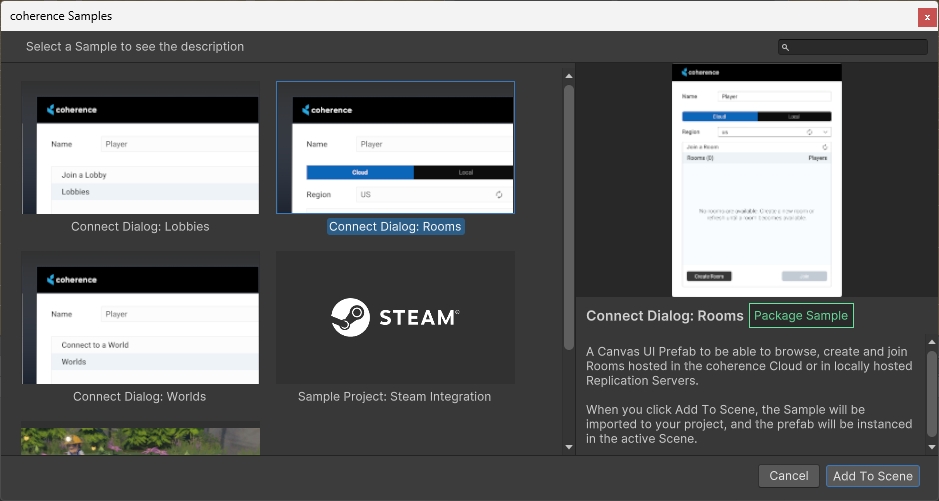Sample Connection UIs
Last updated
Was this helpful?
Last updated
Was this helpful?
The coherence package comes with several UI samples. The samples can get you connected to the Replication Server in no time, and are really useful for prototyping and learning.
In time, you can also edit the provided Prefabs and scripts however you want, to customise them to fit the style and functionality of your game.
The currently available samples are:
Lobbies Connection dialog
Matchmaking dialog
The difference between Rooms and Worlds is explained on this page: Rooms and Worlds, while Lobbies have somewhat of a different role, in that they are usually used in addition to Rooms in a game flow.
Each sample comes with a Prefab that can be added to your Scene. You can add them via coherence > Explore Samples.
Effectively these do two things for you:
Import the sample in the Samples directory of your project, if it isn't already.
Add the Prefab from the sample to your Scene.
Int the example above, that would be Room Connection Dialog.prefab.
You don't need to do anything else for the sample UIs to work (except of course, a Replication Server needs to be running to connect to it!).
My sample UI doesn't work!
If you notice that the samples are non-responsive to input, make sure you have a GameObject with an EventSystem component in the scene.
Also ensure that the mouse is not locked by a script. Is the cursor invisible? You might have a script that's modifying the cursor's lock state. In that case, modify the script or remove it.
The Rooms Connect Dialog has a few helpful components that are explained below.
At the top of the dialog we have an input field for the player's name.
Next is a toggle between Cloud and Local. You can switch to Local if you want to connect to a Rooms Replication Server that is running on your computer.
Next is a dropdown for region selection. This dropdown is populated when regions are fetched from the coherence cloud. The default selection is the first available region. This is not enabled when you switch from Cloud to Local. This is also only relevant if you deploy your game to several different regions.
Next is a dropdown of available Rooms in the selected region (or in your local server if using the Local mode).
After selecting a Room from the list the Join button can be used to join that Room.
If you know someone has created a room but you don't see it, you can manually refresh the rooms list using the Refresh button.
The Create a room section adds a Room to the selected region.
This section contains controls for setting a Room's name and maximum player capacity. Pressing the Create button will create a Room with the specified parameters and immediately add it to the Room Dropdown above. Create and Join will create the Room, and also join it immediately.
The Worlds Connect Dialog is a good option to start simple. It simply holds a dropdown for region selection, an input field for the players name, and a Connect button.
If you start a local World Replication Server, it will appear as LocalWorld. Similarly if there are Worlds running in the coherence Cloud, they will be listed here.
Future versions of coherence won't override your changes. If you upgrade to a newer version of coherence and import a new sample, they will be imported in a separate folder named after the coherence version.
If you want the new sample to overwrite the old one, first rename the folder in which the samples are, then import the new version.
Samples are copied to your assets folder, in Samples/coherence/version_number/. This means you can change and customise the scripts and Prefabs however you like.
The folder to rename is the one that is named after the version number (normally its path would be something like Samples/coherence/1.1.0/ for coherence 1.1.0).
